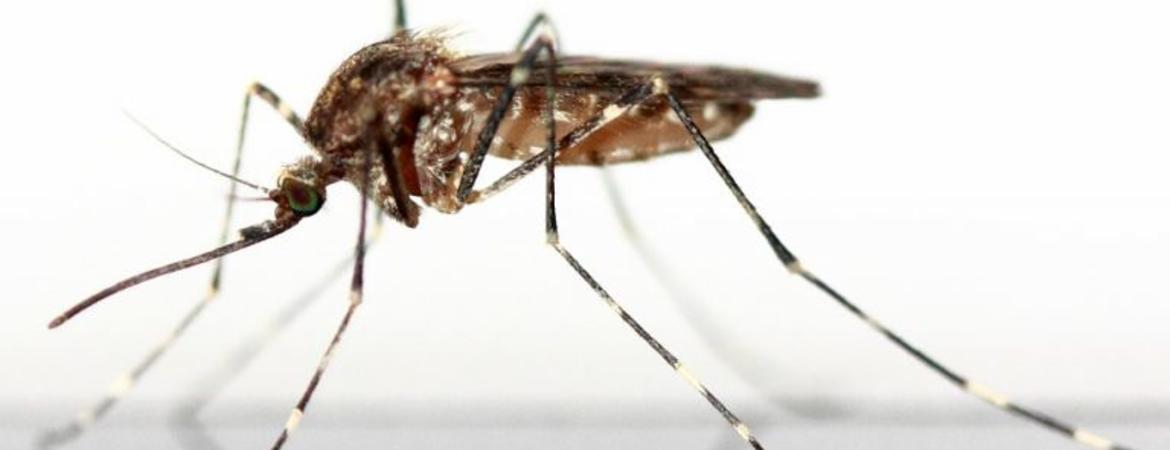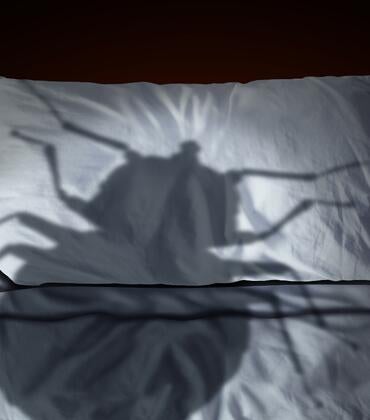
A UC Riverside scientist has been awarded $2.3 million from the National Institutes of Health (NIH)’s ‘High-Risk, High-Reward’ program to study the role of steroid hormone transporters in insect development and reproduction. Naoki Yamanaka, an assistant professor of entomology, will translate that knowledge into new ways to combat the spread of mosquitoes, which are among the deadliest animals on the planet.
"This award recognizes the critical importance of Dr. Yamanaka's research in fighting one of the world's most lethal disease carriers," said Kathryn Uhrich, dean of UCR's College of Natural and Agricultural Sciences.
Steroid hormones mediate many biological processes, including growth and development in insects, and sexual maturation, immunity and cancer progression in humans. After they are produced by glands of the endocrine system, steroid hormones must enter cells to exert their biological effects. For decades, the assumption has been that these hormones enter cells by simple diffusion, but preliminary work in Yamanaka’s lab suggests a defined passageway controlled by proteins called membrane transporters.
“The overall goal of this project is to challenge the conventional paradigm in endocrinology that steroid hormones freely travel across cell membranes by simple diffusion,” Yamanaka said. “We will also screen chemicals that inhibit steroid hormone entry into cells, with the goal of developing new pest control reagents.”
Yamanaka’s project is one of 89 High-Risk, High-Reward awards given by NIH this year to “extraordinarily creative scientists proposing highly innovative research to address major challenges in biomedical research.”
Using the simple but powerful fruit fly model, his team will study how the insect steroid hormone ecdysone is transported in (and potentially out) of cells with the help of membrane transporters. Since ecdysone controls metamorphosis and molting as an insect moves from one stage of its life cycle to the next, blocking its transport could offer a new way to inhibit insect growth and development.
The team will then study the same transport pathway in the mosquito that causes yellow fever, hoping to identify chemicals that inhibit steroid hormone transport as a pest control strategy. Worldwide, mosquito-borne diseases cause millions of deaths each year, with malaria alone causing more than 400,000 deaths, according to the World Health Organization.
“By targeting the membrane transporter from outside the cells, we may be able to circumvent common pesticide resistance machinery provided by proteins within the cells, such as detoxification enzymes and drug efflux pumps,” Yamanaka said.
Richard Redak, professor and chair of UCR's Department of Entomology, called the funding "a fantastic opportunity."
"This award not only allows Naoki to continue his cutting edge research, but also serves as outstanding recognition for accomplishments to date. We are eagerly looking forward to seeing the impact of this project,” Redak said.
The NIH High-Risk, High-Reward awards comprise four categories: The Pioneer Award, New Innovator Award, Transformative Research Award and Early Independence Award. Yamanaka’s award is a New Innovator Award, which supports “unusually innovative research from early career investigators who are within 10 years of their final degree or clinical residency and have not yet received a research project grant or equivalent NIH grant.”
The research will be supported under NIH grant number DP2 GM132929. Read more about these awards and the recipients on the NIH website.




